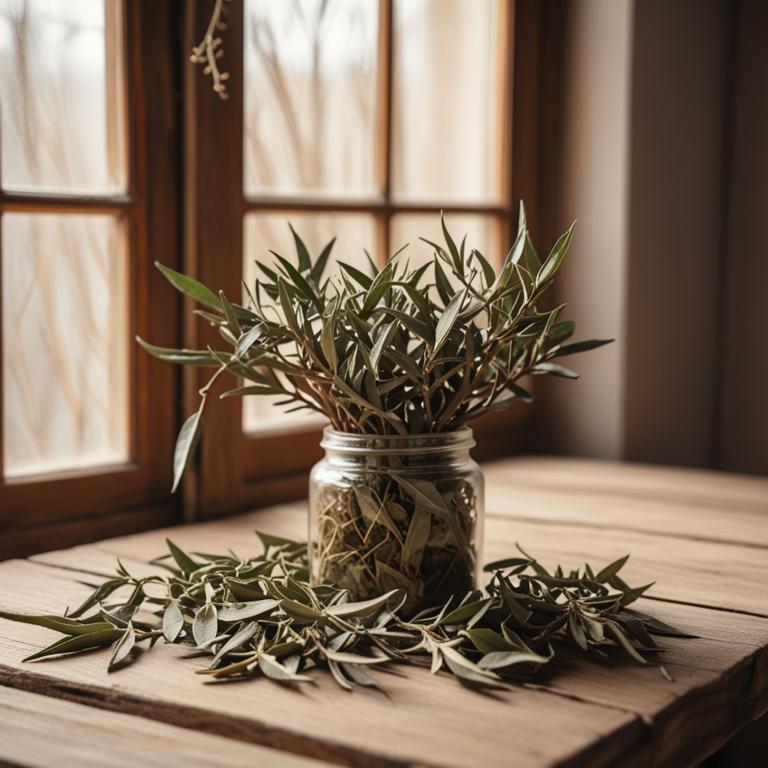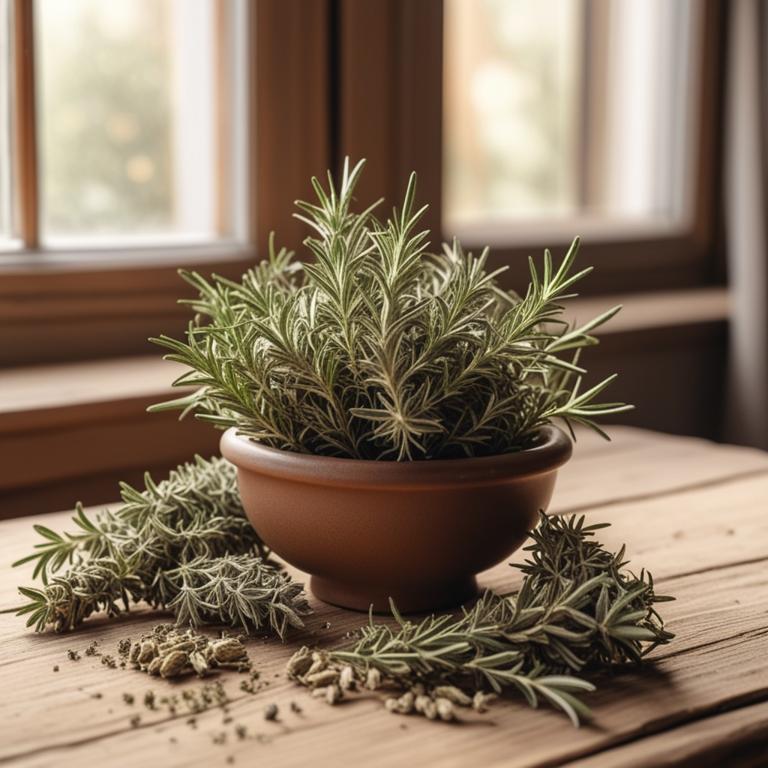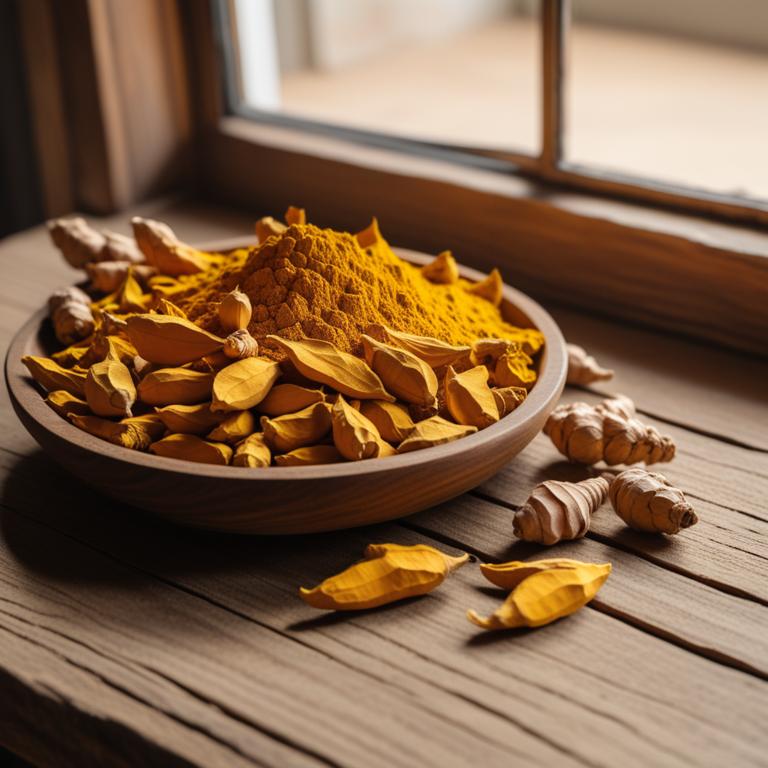Updated: Dec 1, 2024
Puffy Eyes: Understanding the Causes and Finding Natural Remedies

Puffy eyes can be a real nuisance, making you look tired and not feel your best.
They can make it hard to concentrate and affect your mood. But what causes them?. One reason is poor circulation, which can cause fluid to build up in the delicate skin around your eyes. Another reason is allergies, which can trigger an allergic reaction and lead to puffy eyes. You can also get puffy eyes from eating too much salt or drinking too much caffeine. To treat puffy eyes, some people swear by herbal remedies.
For example, cucumber is a natural coolant that can help reduce swelling. A cold cucumber slice can be a soothing way to calm down your eyes. Peppermint is another herb that can help ease puffy eyes. You can steep dried peppermint leaves in hot water to make a tea, or rub a few drops of peppermint oil on a cool cloth and place it over your eyes. Chamomile is also a popular herb for puffy eyes. You can make a tea by steeping dried chamomile flowers in hot water, or apply a chamomile compress to your eyes.
These herbs can help reduce inflammation and ease the puffiness.
Table of Contents
What causes puffy eyes to form?
The main causes of puffy eyes are several factors that can affect the delicate skin around your eyes.
Allergies are one of the main culprits, as they trigger the release of histamine, a chemical that causes blood vessels to swell and become inflamed, leading to puffiness. Sinusitis, an infection or inflammation of the sinuses, can also cause puffiness due to the increased mucus production and swelling in the face and eyes.
Hypertension, or high blood pressure, can cause the blood vessels in the face to become swollen, leading to puffy eyes. Fluid retention is another common cause, as it leads to water accumulation in the body, which can cause the skin around the eyes to become puffy and swollen.
Finally, sleep apnea, a sleep disorder that causes people to stop breathing for short periods, can also lead to puffiness due to the repeated swelling and deflating of the blood vessels in the face.
What are the benefits of using herbs as a remedy for puffy eyes?
Using herbs to reduce puffy eyes can be very helpful.
These natural remedies can reduce swelling and redness, making your eyes look more normal. One of the main benefits is that they are often gentle on your skin, unlike some other treatments that can be harsh or irritating.
Herbs can also help to relax the muscles around your eyes, which can get tense and cause puffiness. Additionally, some herbs have anti-inflammatory properties, which can help to reduce the swelling and redness caused by allergies or other irritants. When applied topically, these herbs can be absorbed easily into the skin, providing quick relief from puffy eyes.
They can also be used in combination with other treatments, such as cold compresses or eye creams, to enhance their effectiveness.
What are the main medicinal herbs for treating puffy eyes naturally?

Herbs can be a great way to reduce puffy eyes.
For example, Echinacea purpurea has anti-inflammatory properties that can help reduce swelling. It also has antioxidants that can protect the delicate skin around your eyes from damage. Silybum marianum, also known as milk thistle, is a natural decongestant that can help reduce puffiness by improving circulation and removing excess fluids.
Calendula officinalis is a soothing herb that can calm and comfort the skin, reducing redness and inflammation. Aloe barbadensis is a natural moisturizer that can help hydrate the skin and reduce puffiness. Euphrasia officinalis, also known as eye bright, is a herb specifically designed to help reduce puffiness and dark circles under the eyes by improving circulation and removing excess fluids.
These herbs can be used in a variety of ways, including eye creams, toners, and compresses, to help reduce puffy eyes and leave your skin feeling refreshed and rejuvenated.
What herbal solutions are typically used to address puffy eyes?

Herbal preparations can help with puffy eyes because they can reduce swelling and relax the skin around your eyes.
An eye cream made from soothing herbs like aloe vera or chamomile can be applied directly to the skin to calm irritation and reduce puffiness. A cold compress, like a cold cloth soaked in an herbal infusion of peppermint or cucumber, can be applied to the eyes to constrict blood vessels and reduce swelling.
You can also take a tincture of herbal remedies like witch hazel or calendula to help reduce inflammation from the inside out. A decoction of herbs like ginger or turmeric can be made into a warm compress to increase blood flow and reduce puffiness.
Alternatively, an herbal infusion of herbs like green tea or rose petals can be cooled and applied to the eyes to calm the skin and reduce inflammation.
Additional Resources:
Which herbs are not recommended for people with puffy eyes?
If you have puffy eyes, it's best to steer clear of Ginkgo biloba, as it can cause your blood vessels to dilate, leading to increased fluid buildup under your eyes, making them even puffier.
Valeriana officinalis, while great for relaxation, can also cause your blood vessels to dilate, which isn't ideal when you're already dealing with puffy eyes. Artemisia absinthium, commonly known as wormwood, can cause your skin to become more sensitive, and if you already have puffy eyes, you don't want to irritate the area further. Zingiber officinale, or ginger, can cause your skin to become more sensitive and warm, which can make puffy eyes even more noticeable.
Lastly, Hypericum perforatum, or St. John's Wort, can cause your skin to become more sensitive and react to light, which can make puffy eyes even more uncomfortable.
FAQ
Are there any specific herbs that can prevent puffy eyes?
Some herbs like cucumber, chamomile, and peppermint have anti-inflammatory properties that can help reduce puffy eyes.
Cucumber is particularly helpful due to its cooling effect, which can calm the skin around your eyes.
You can apply cooled cucumber slices or use chamomile tea bags to soothe the area.
Is it safe to use herbal remedies for puffy eyes during pregnancy?
Using herbal remedies for puffy eyes during pregnancy can be a bit tricky.
Some herbs, like chamomile and calendula, are generally considered safe in small amounts. However, others like foxglove and comfrey can stimulate the uterus and cause problems.
It's best to stick to well-known, gentle herbs and use them in moderation.
Are there any herbs that can reduce the frequency of puffy eyes?
Some herbs like chamomile and fennel can help reduce puffy eyes.
They're known to have anti-inflammatory properties. When applied as a compress or eye mask, they can help soothe and calm the skin around the eyes.
They might also help decrease swelling and make the skin feel more relaxed.
Can i combine different herbal remedies for puffy eyes?
You can combine herbal remedies for puffy eyes, but be cautious.
Mixing different herbs can cause interactions or worsen symptoms. Start with small amounts and observe how your body reacts. For example, you can try combining aloe vera gel with cucumber extract or green tea with chamomile.
Just remember, it's always better to err on the side of caution.
Related Articles

Cracked Heels: Causes, Symptoms and Treatment with Medicinal Herbs and Herbal Remedies

Sunburn Treatment Options: Medicinal Herbs, Herbal Preparations, and Natural Remedies

Athlete's Foot: Causes, Symptoms, and Effective Herbal Preparations

Causes and Treatment of Eye Infection with Medicinal Herbs and Herbal Preparations

Causes, Symptoms, and Herbal Remedies for Periodontal Disease Prevention and Management






